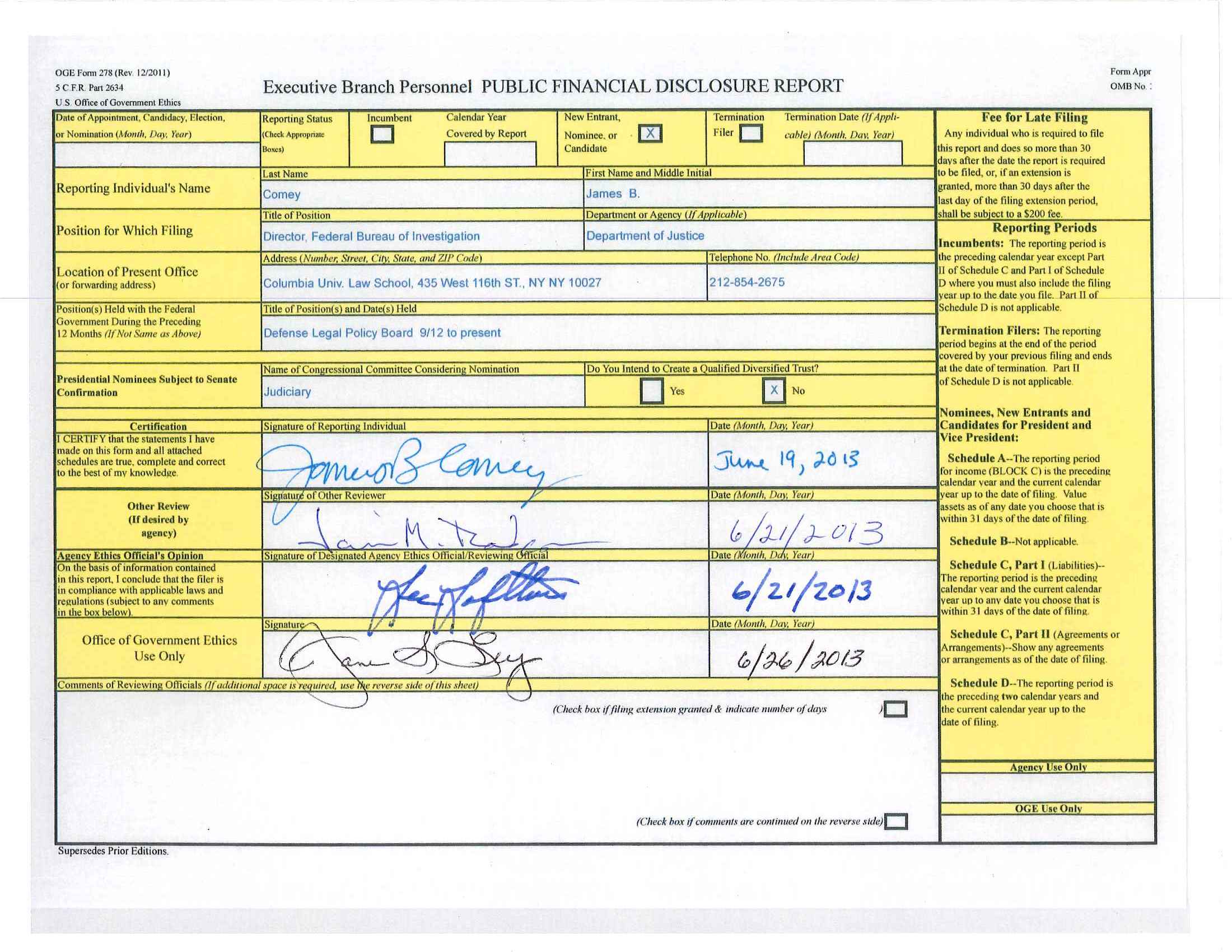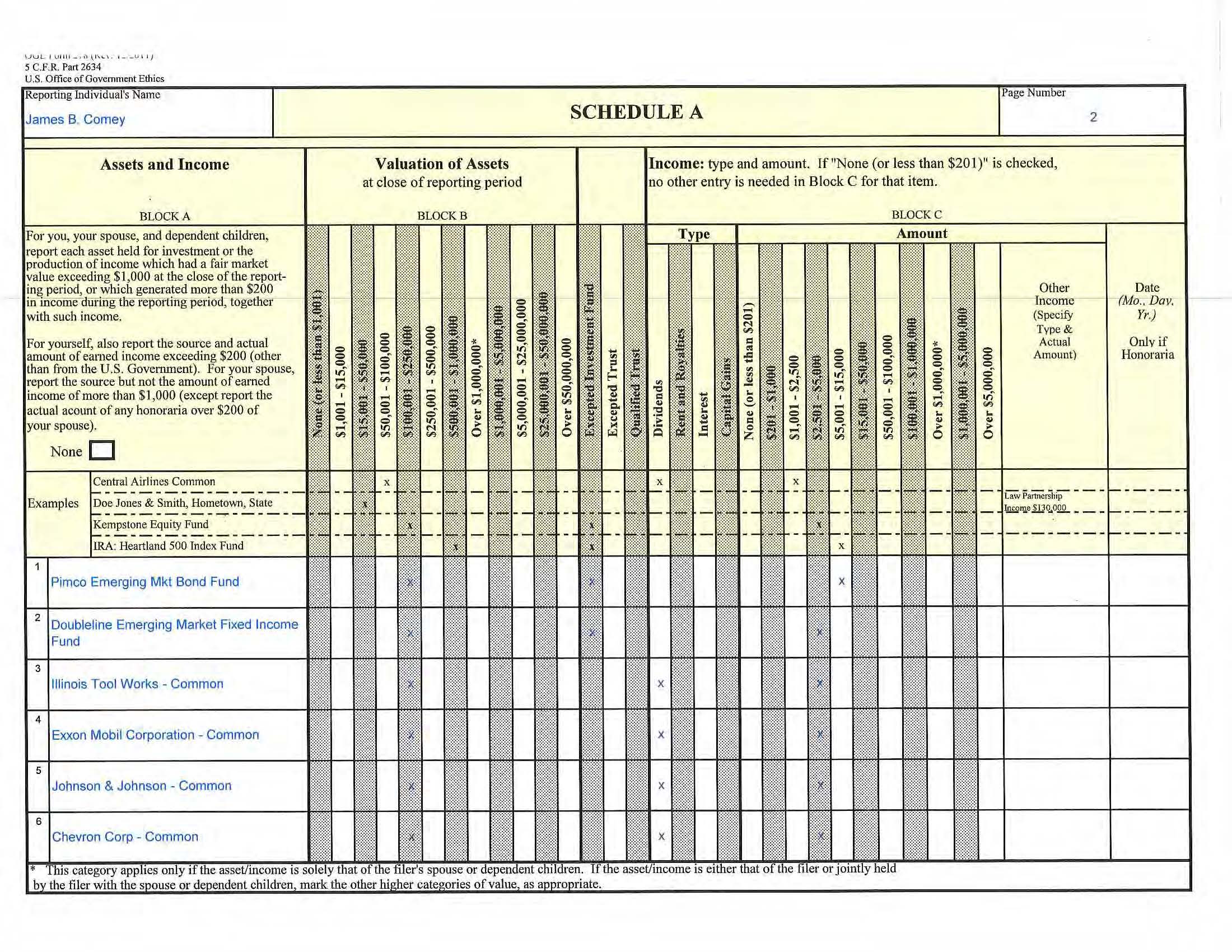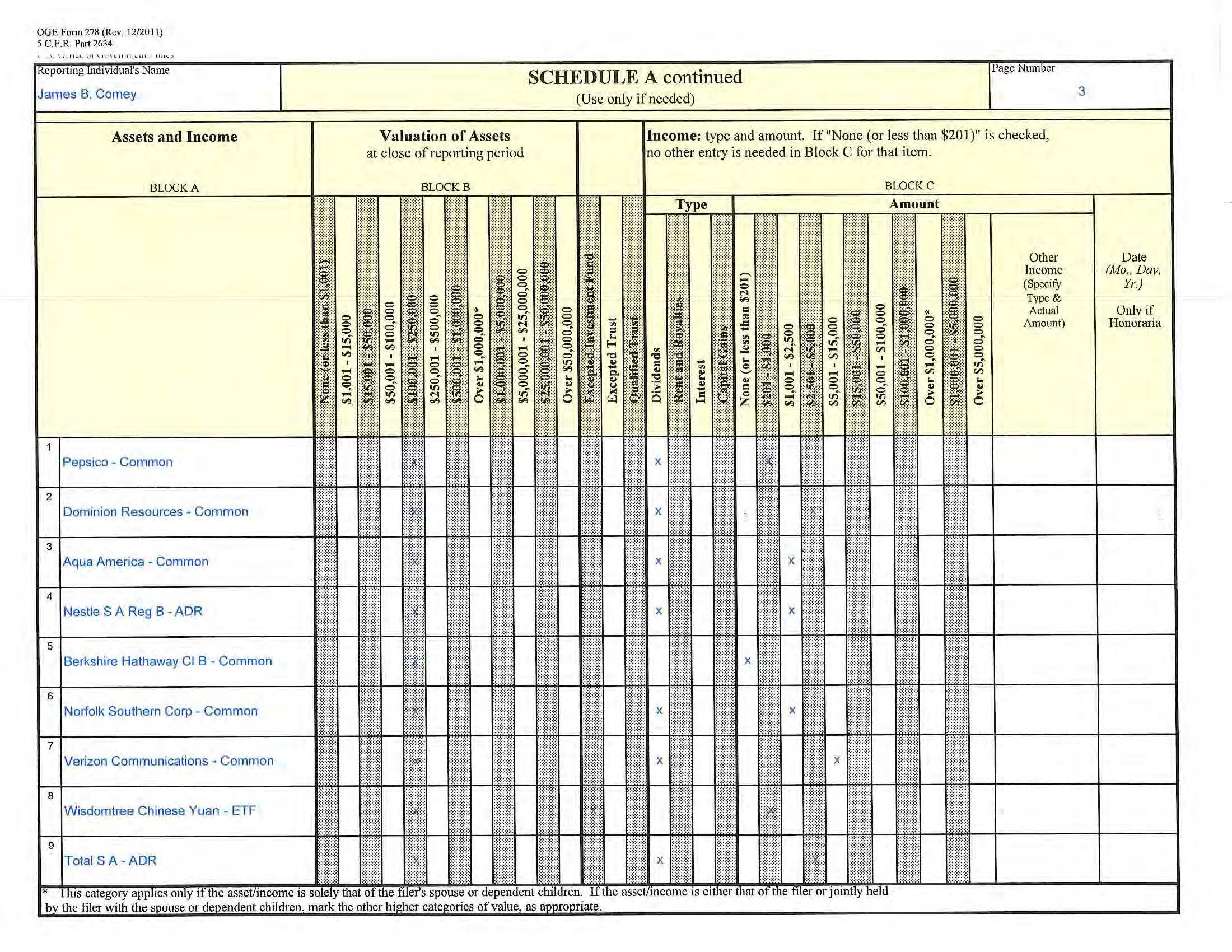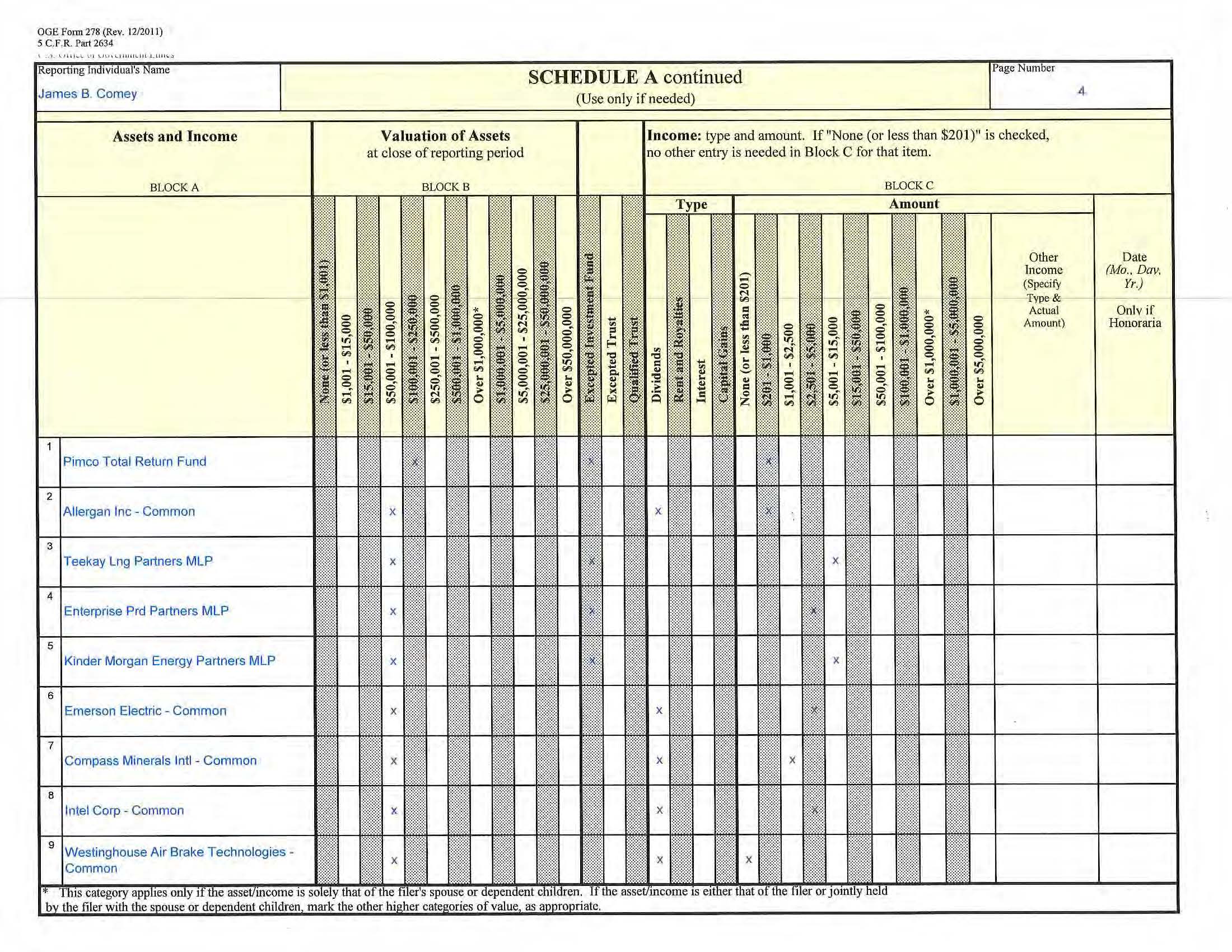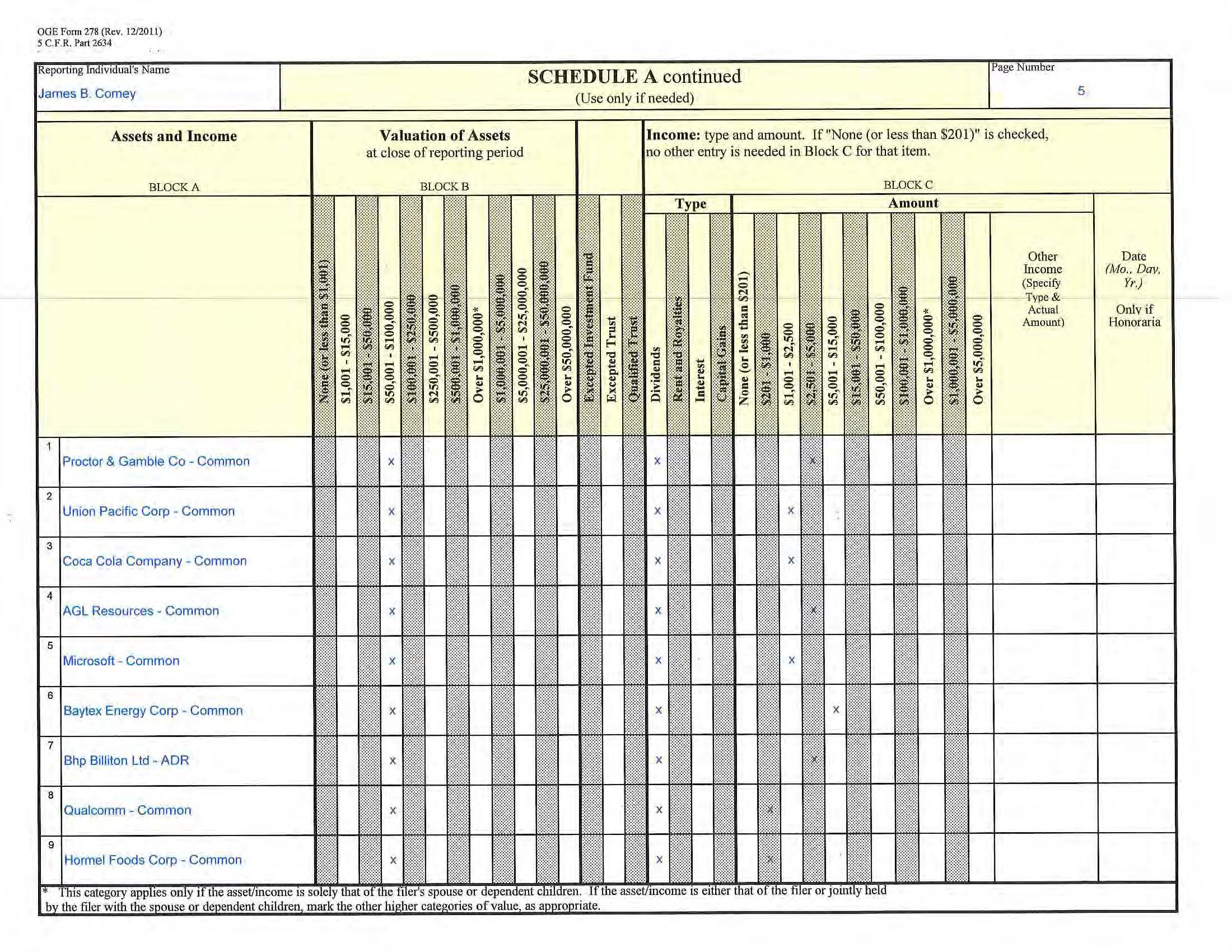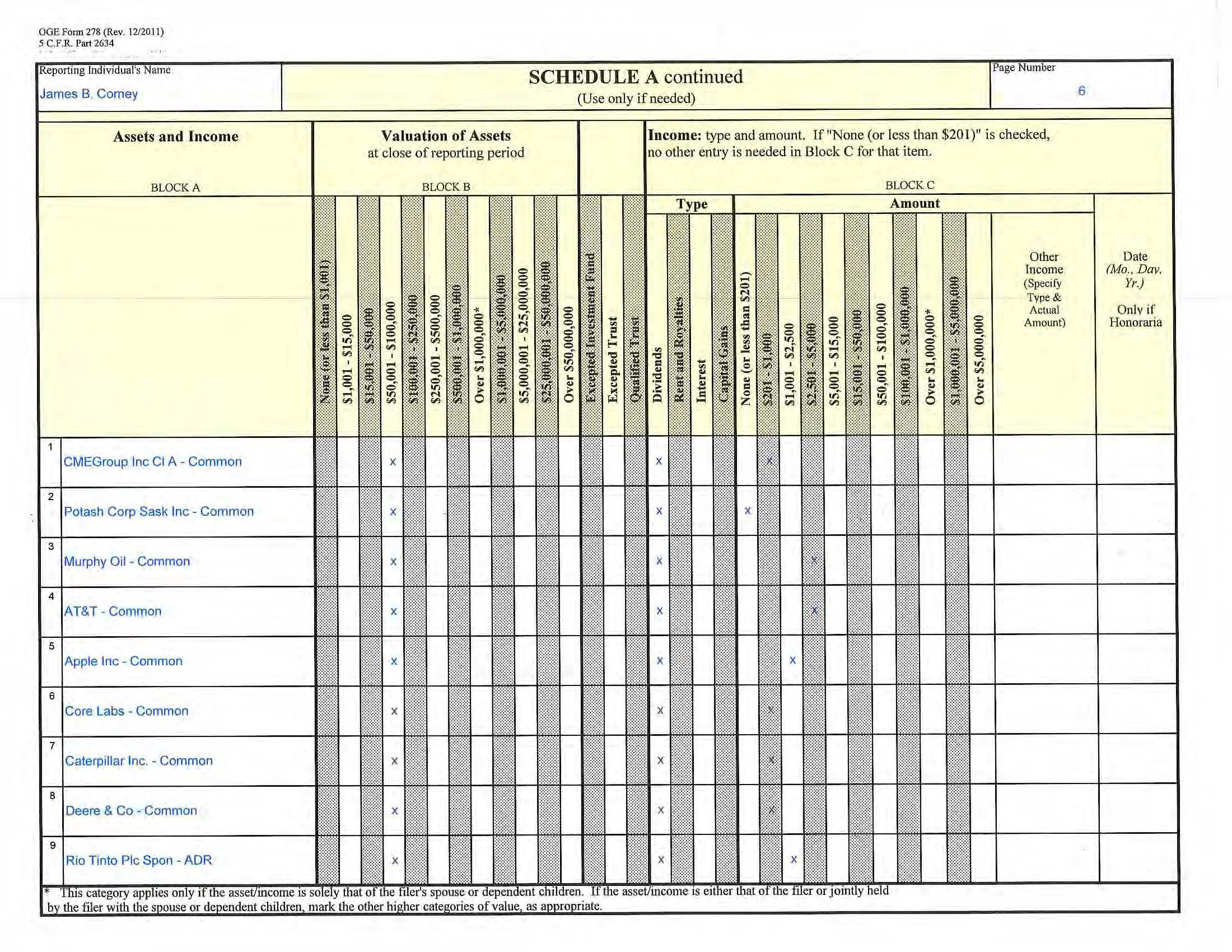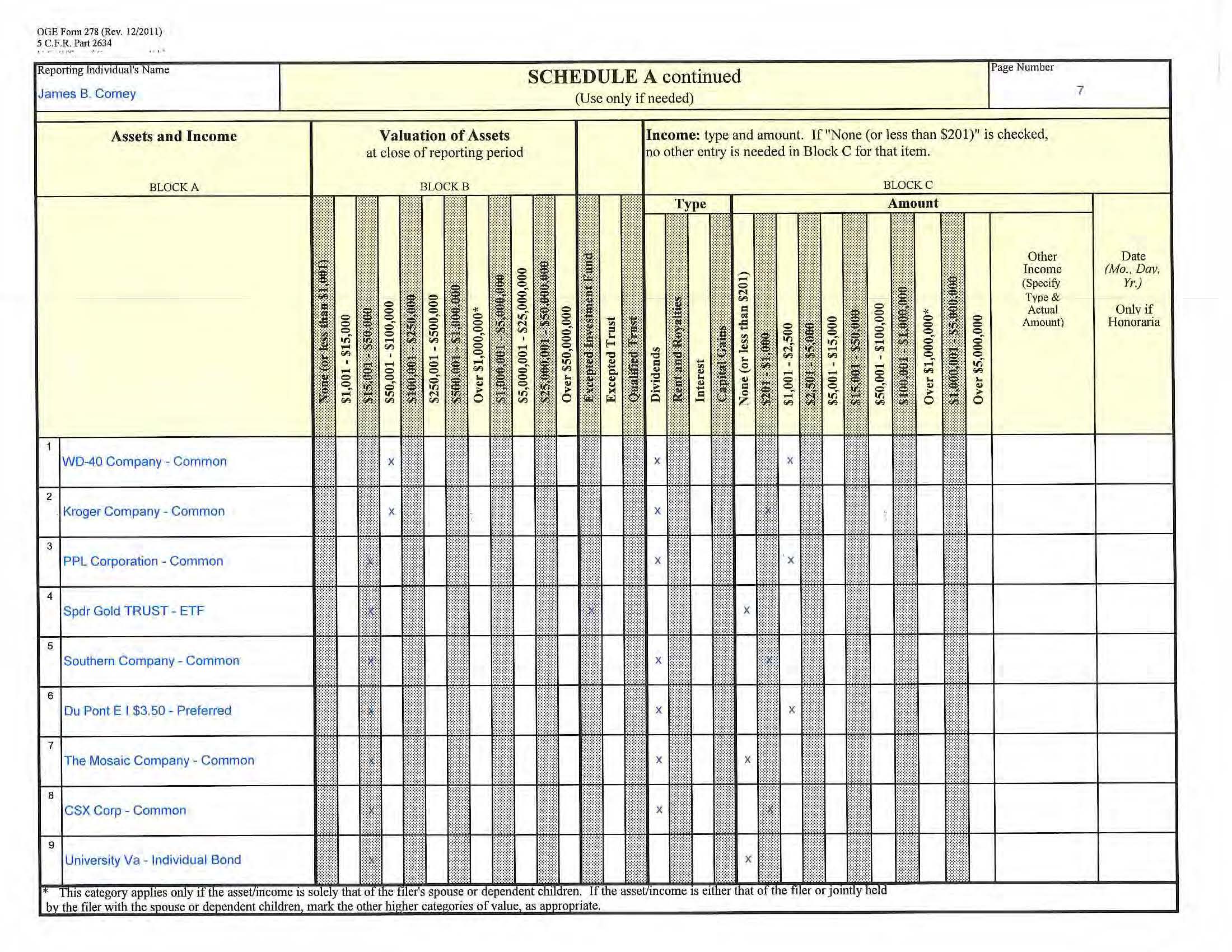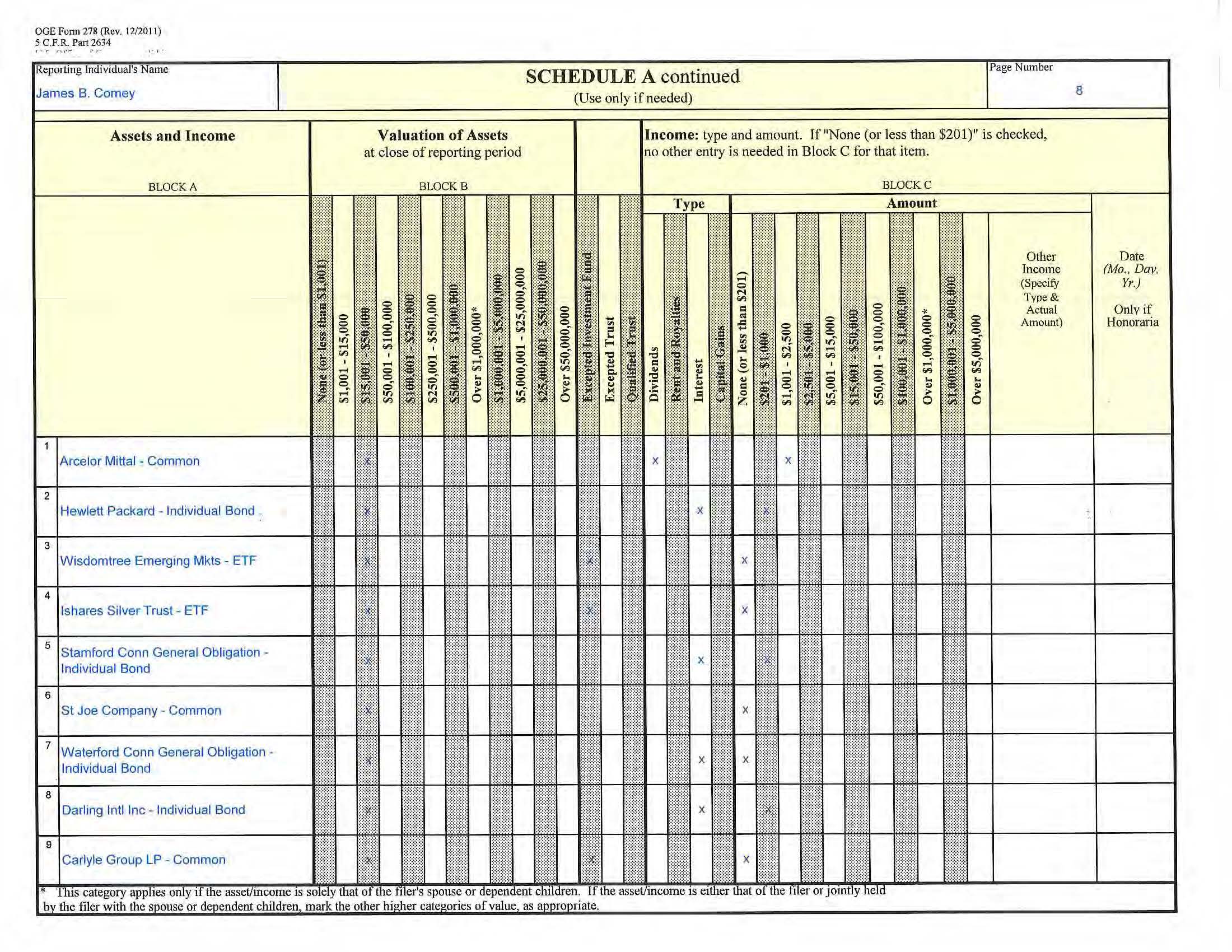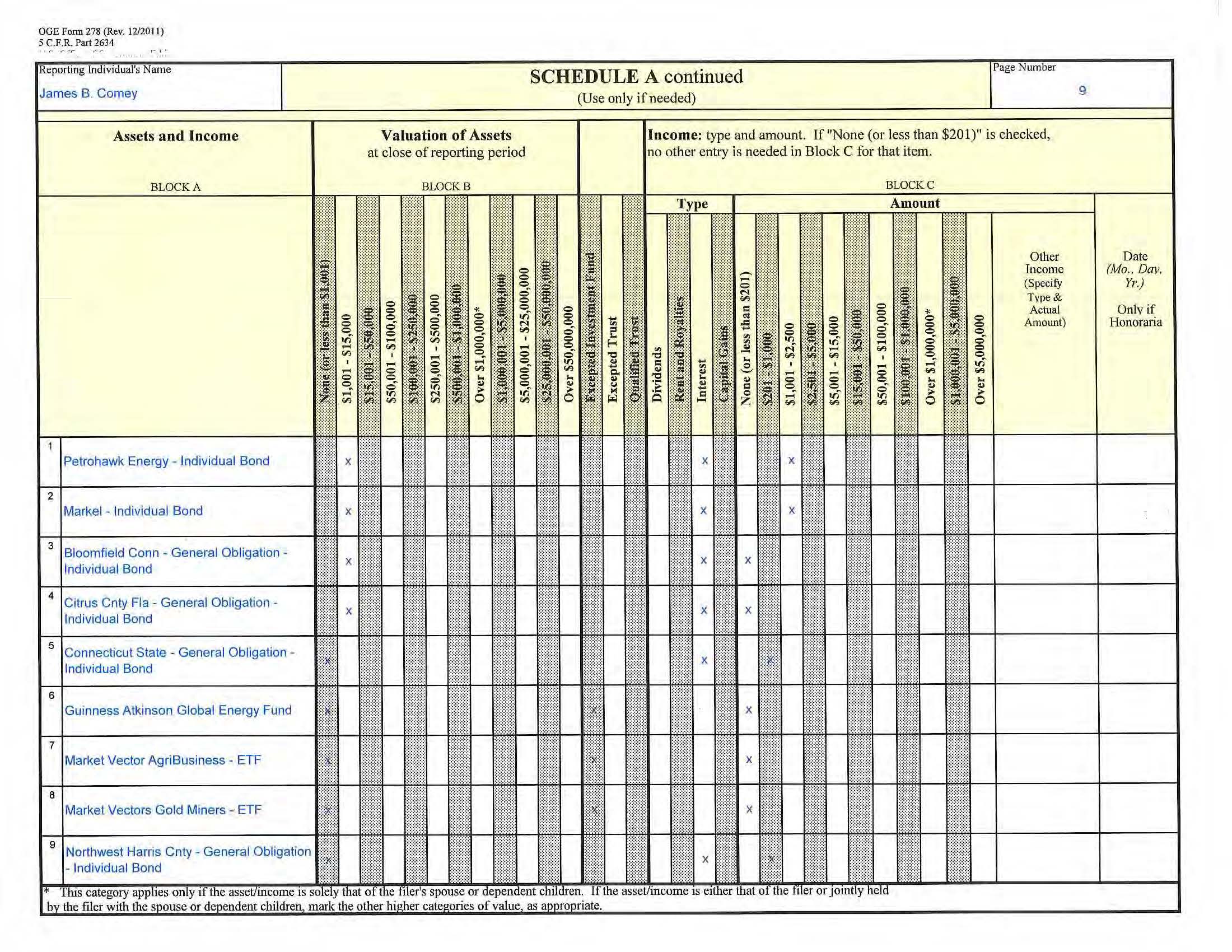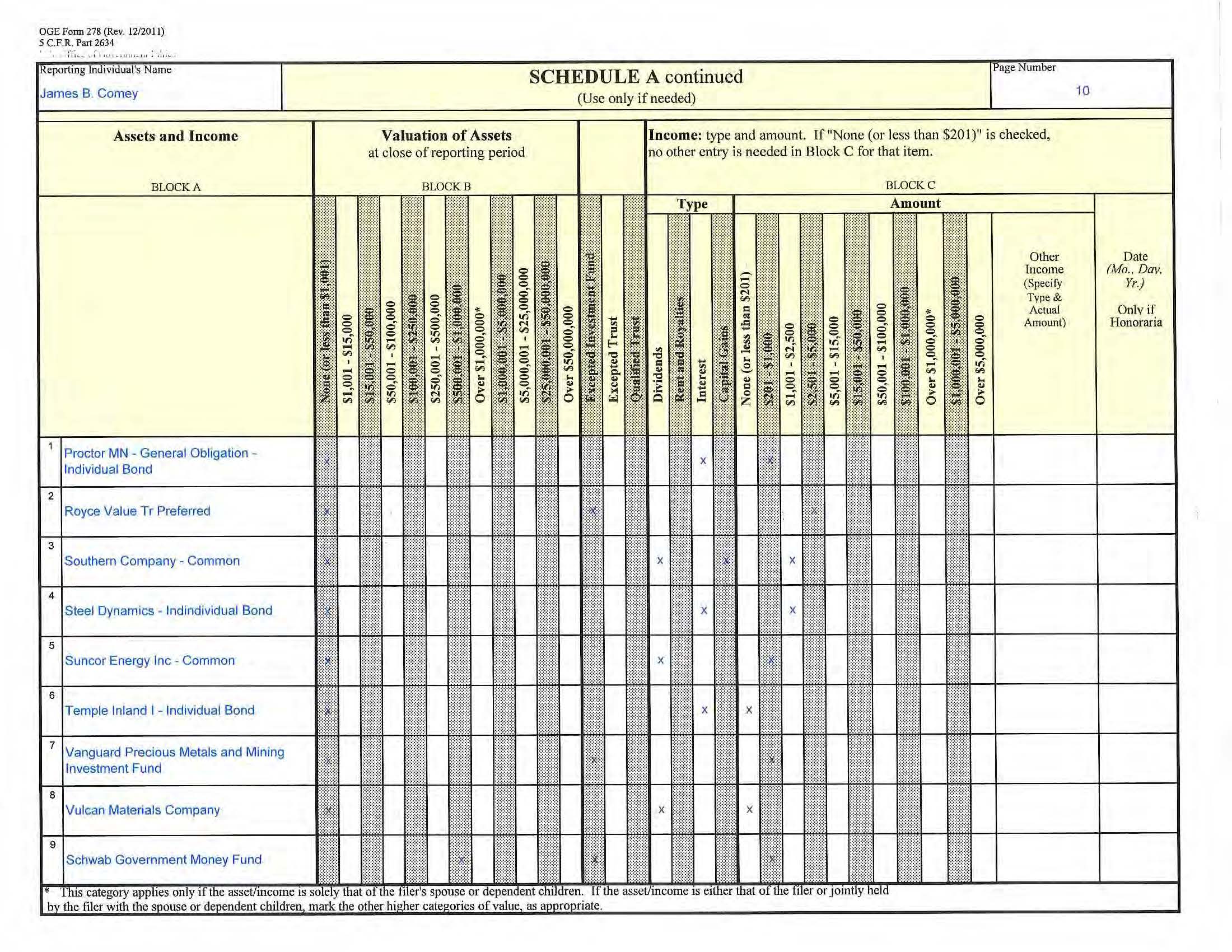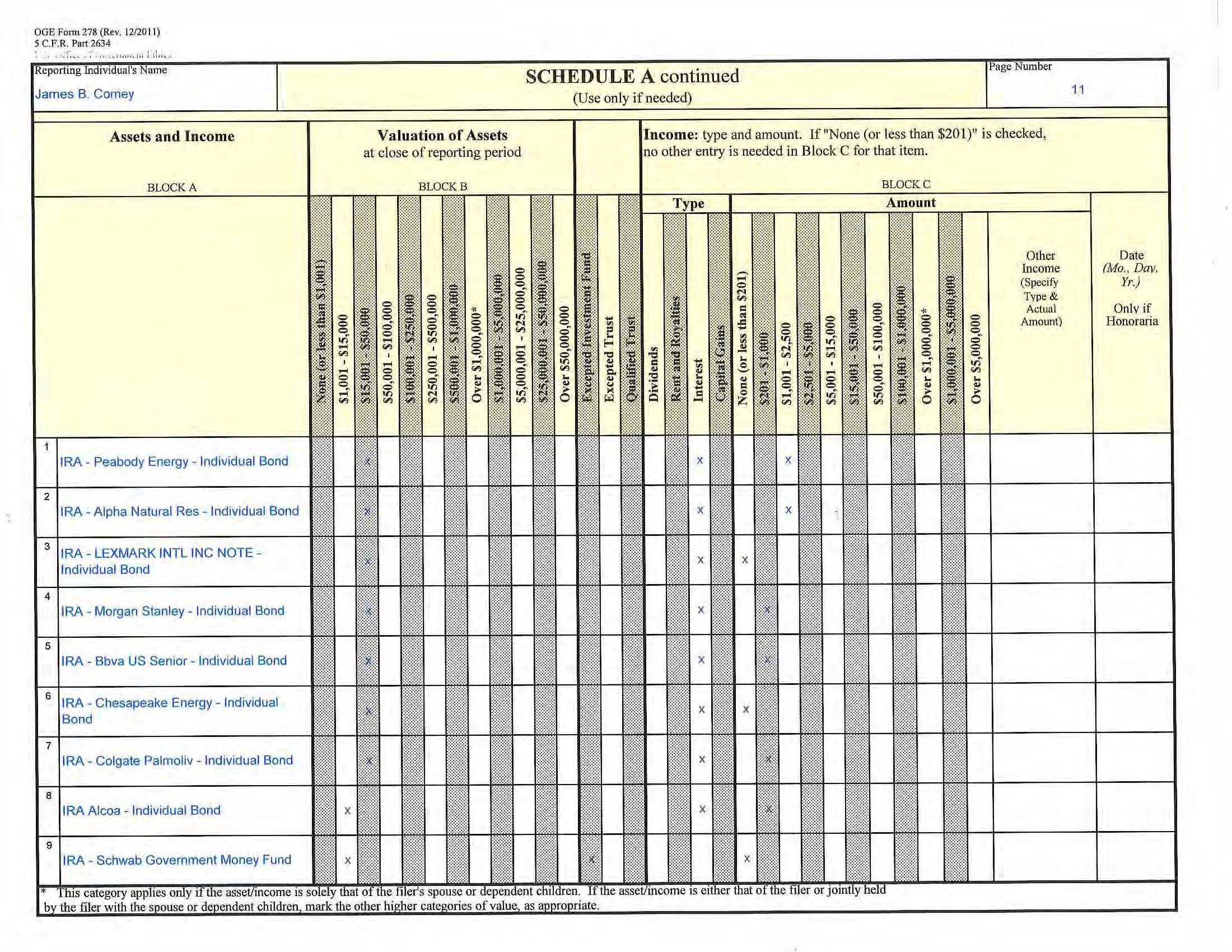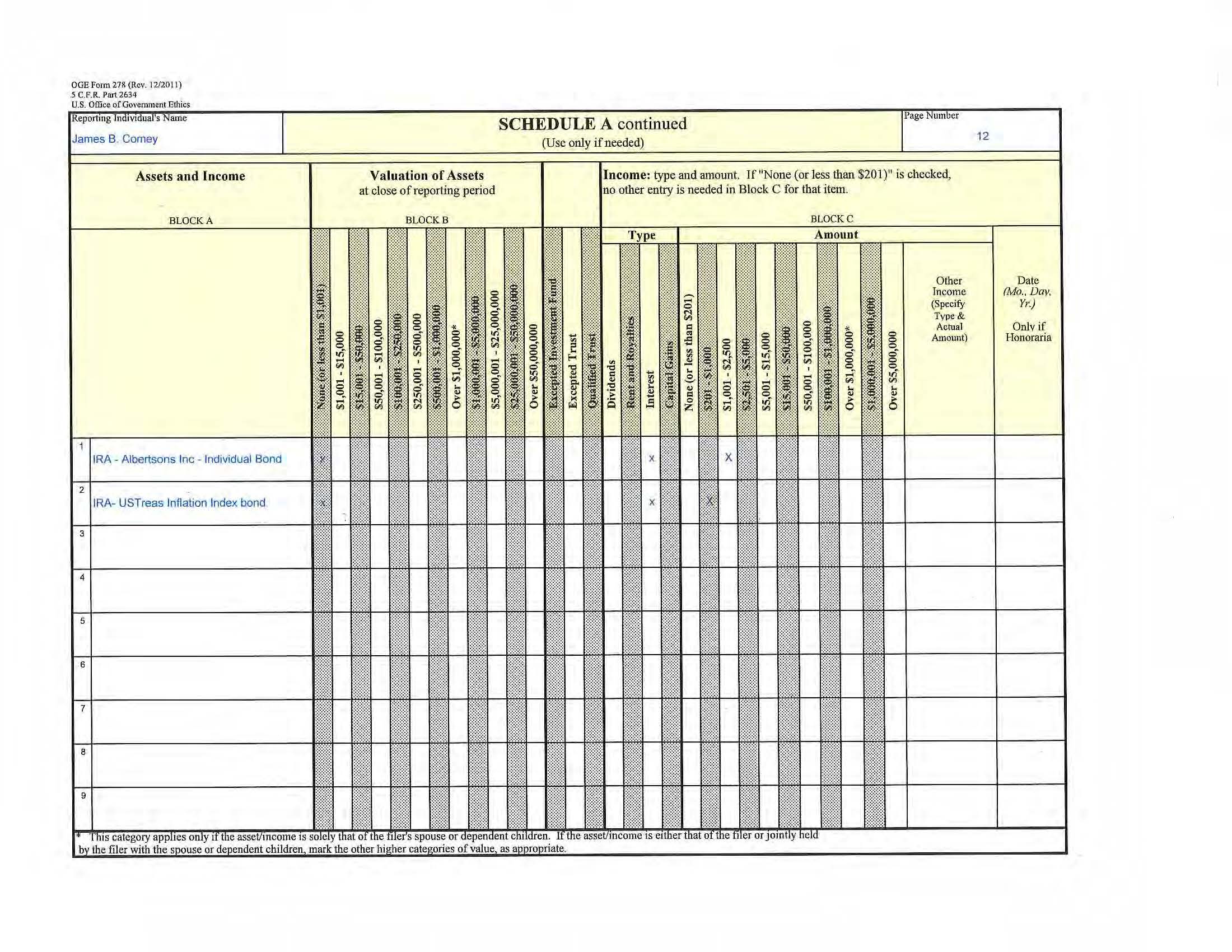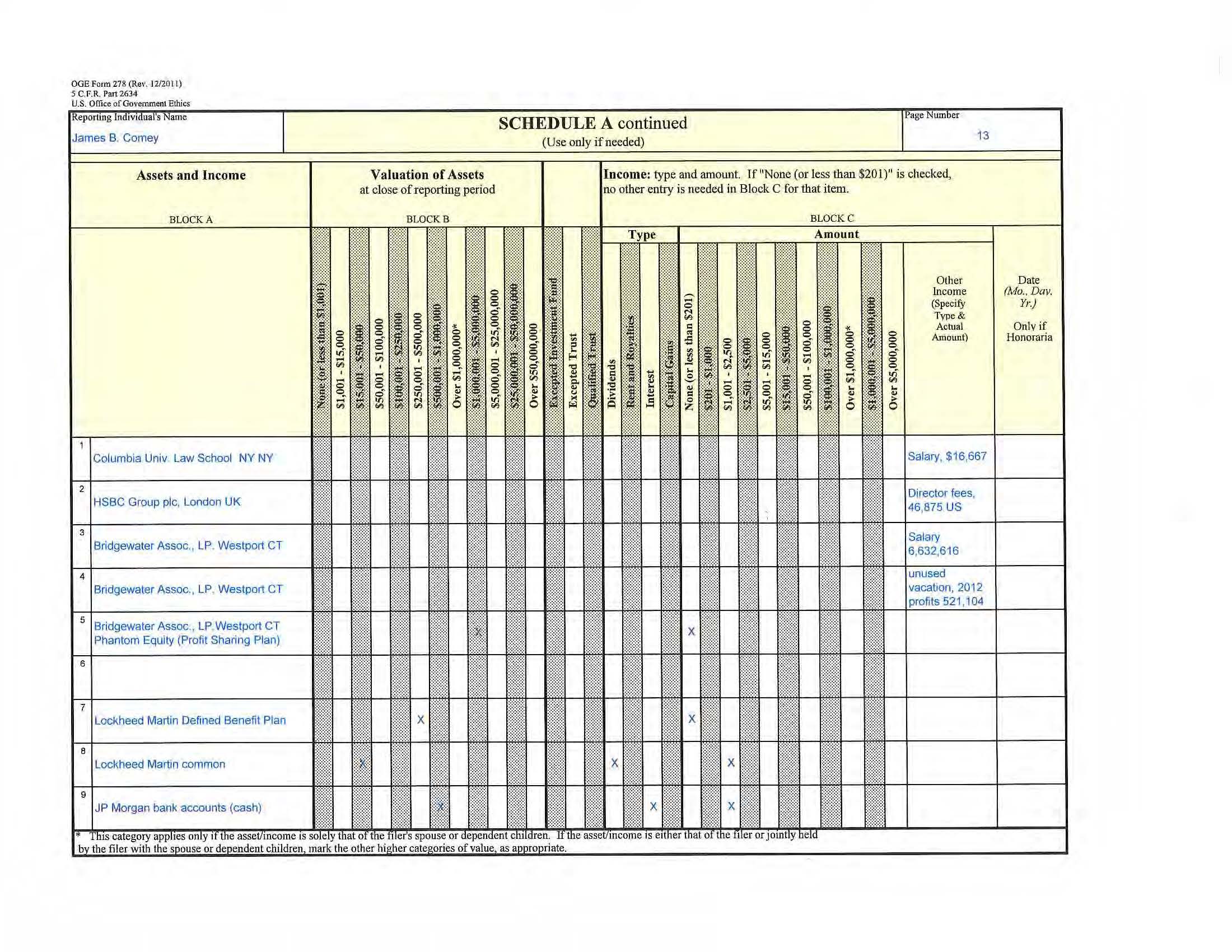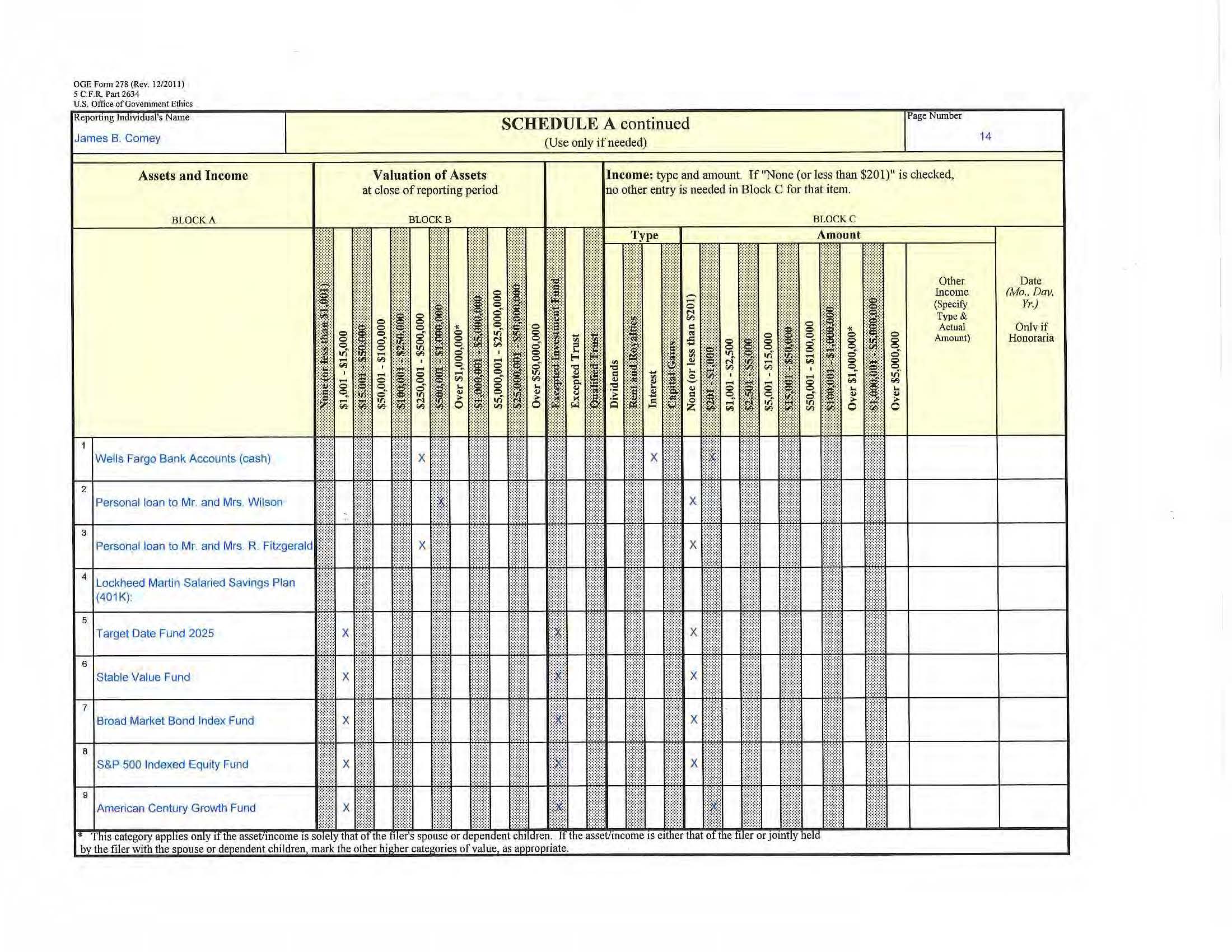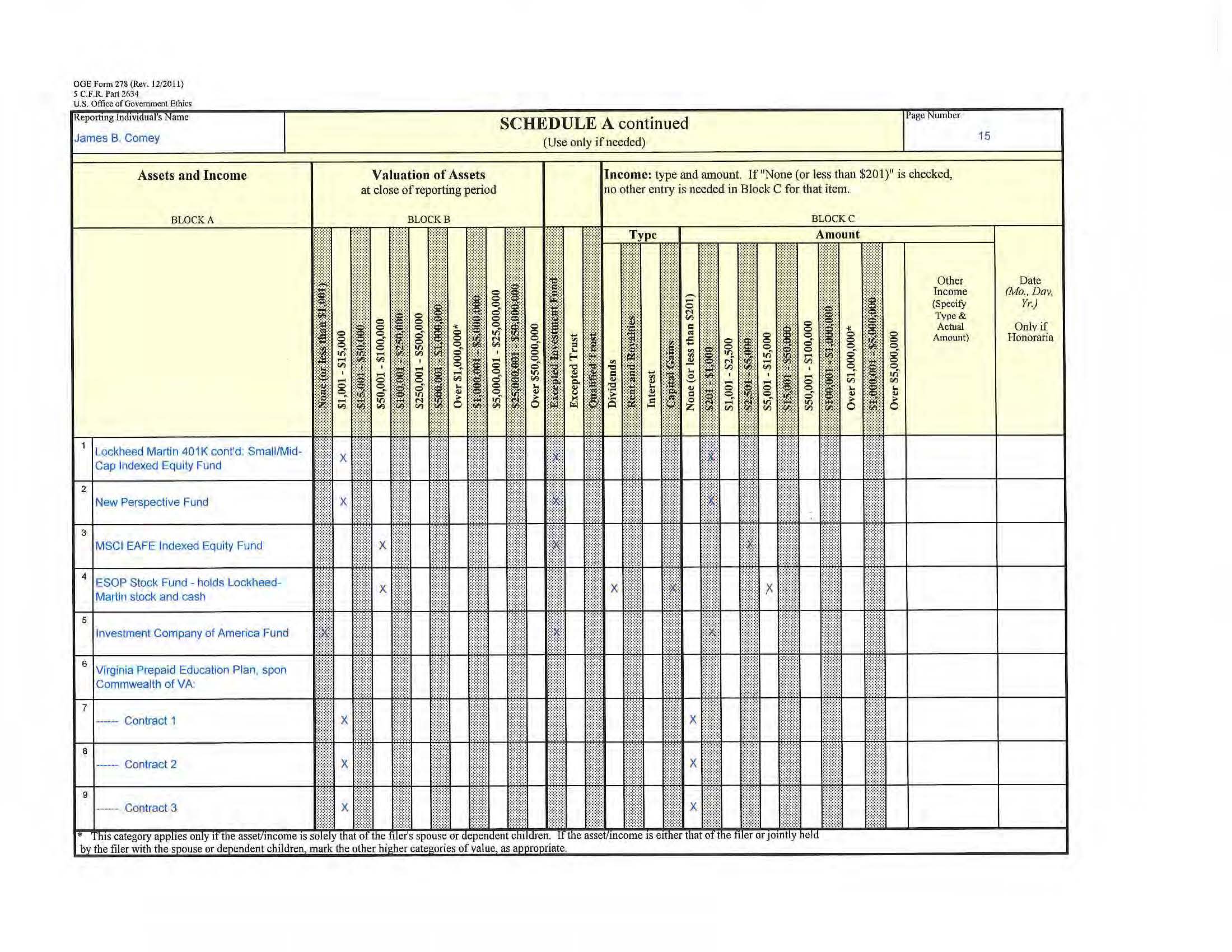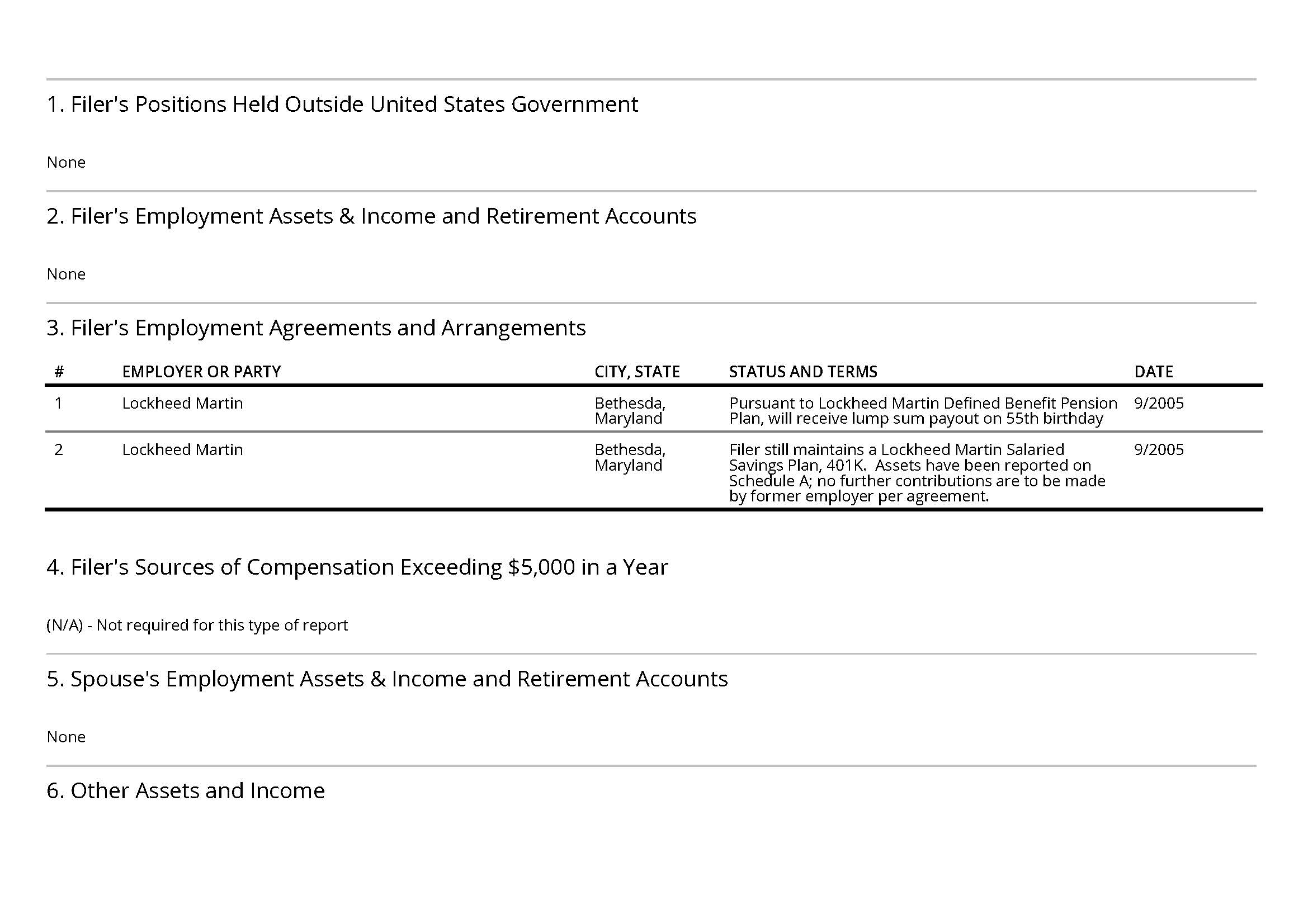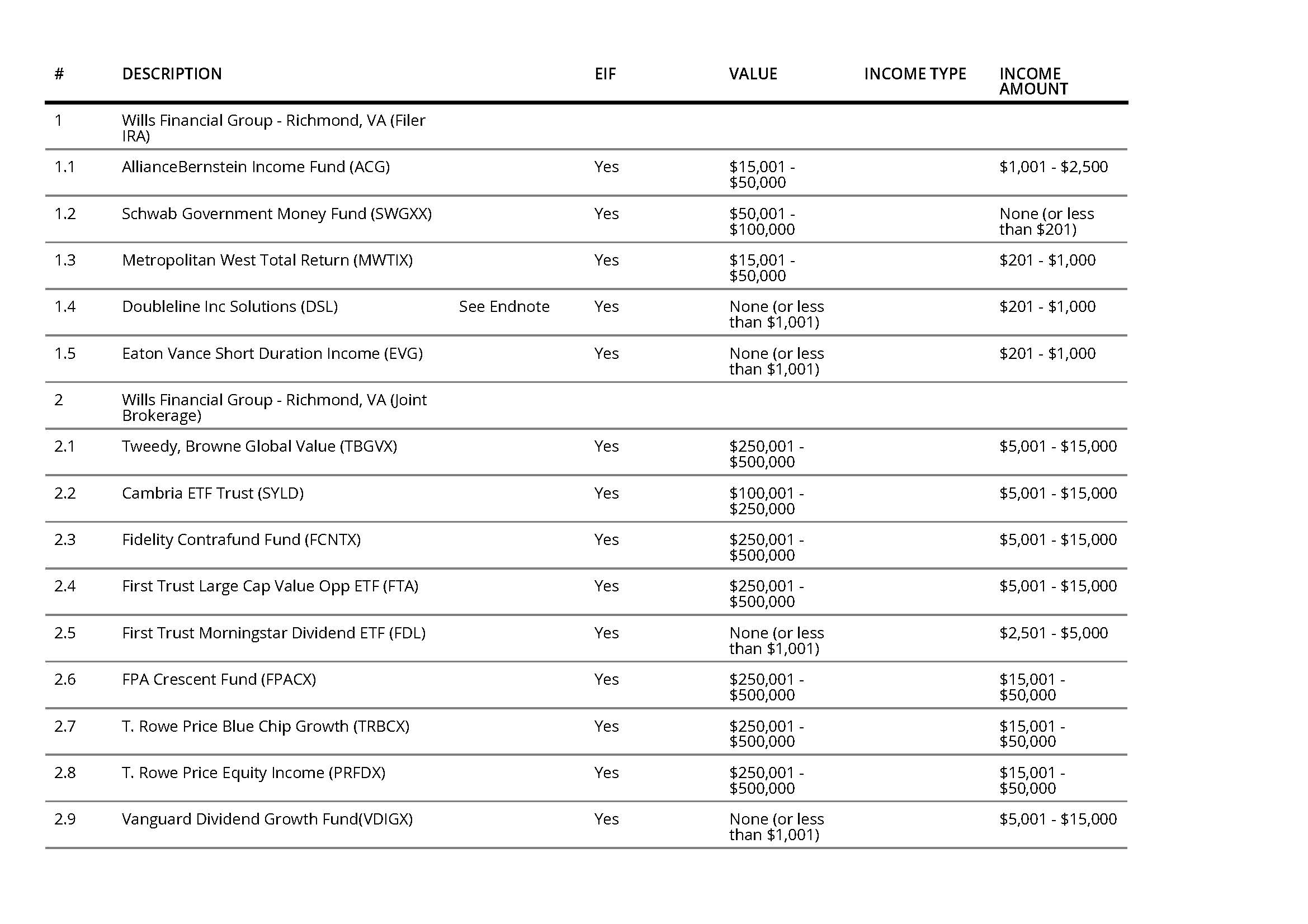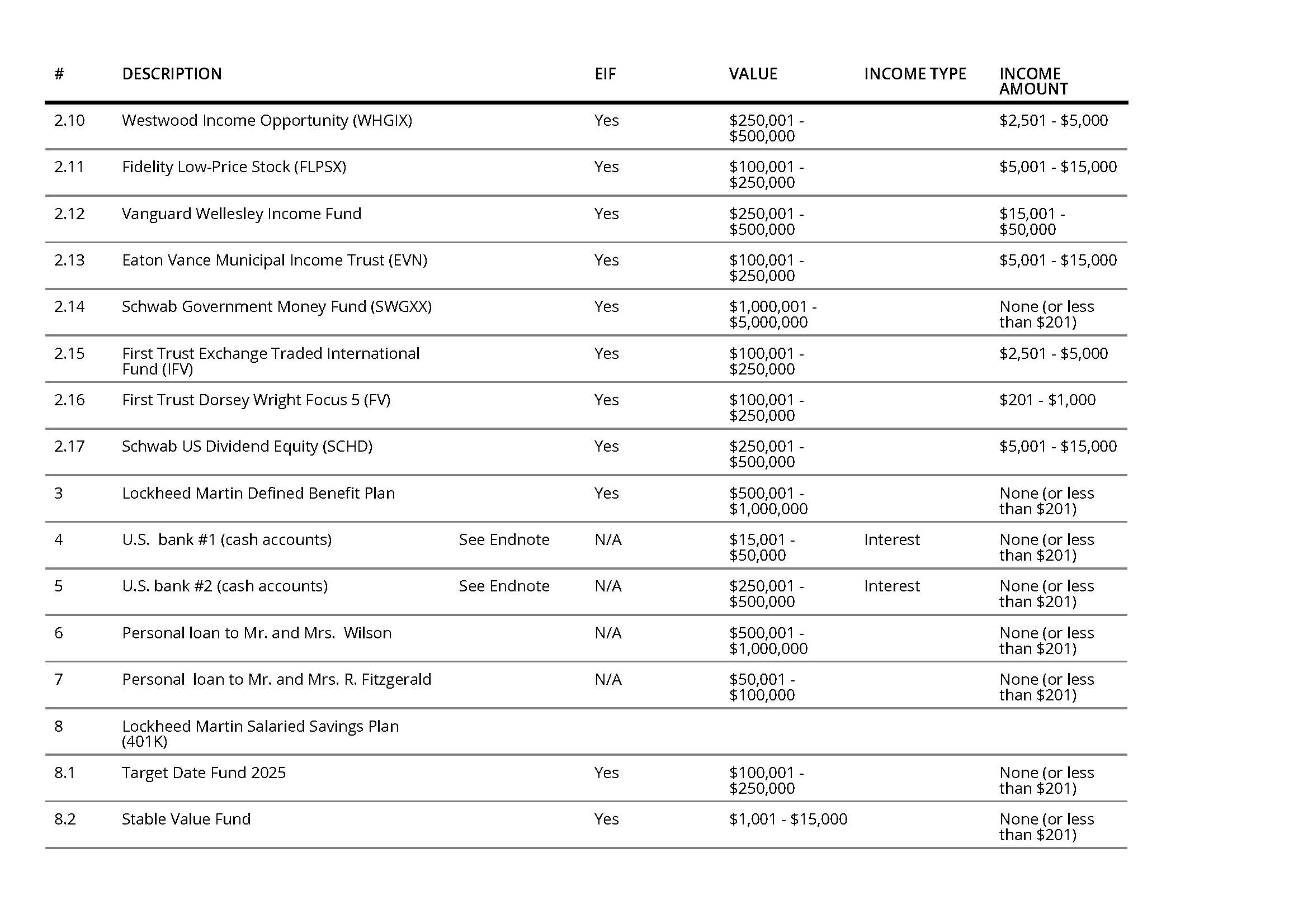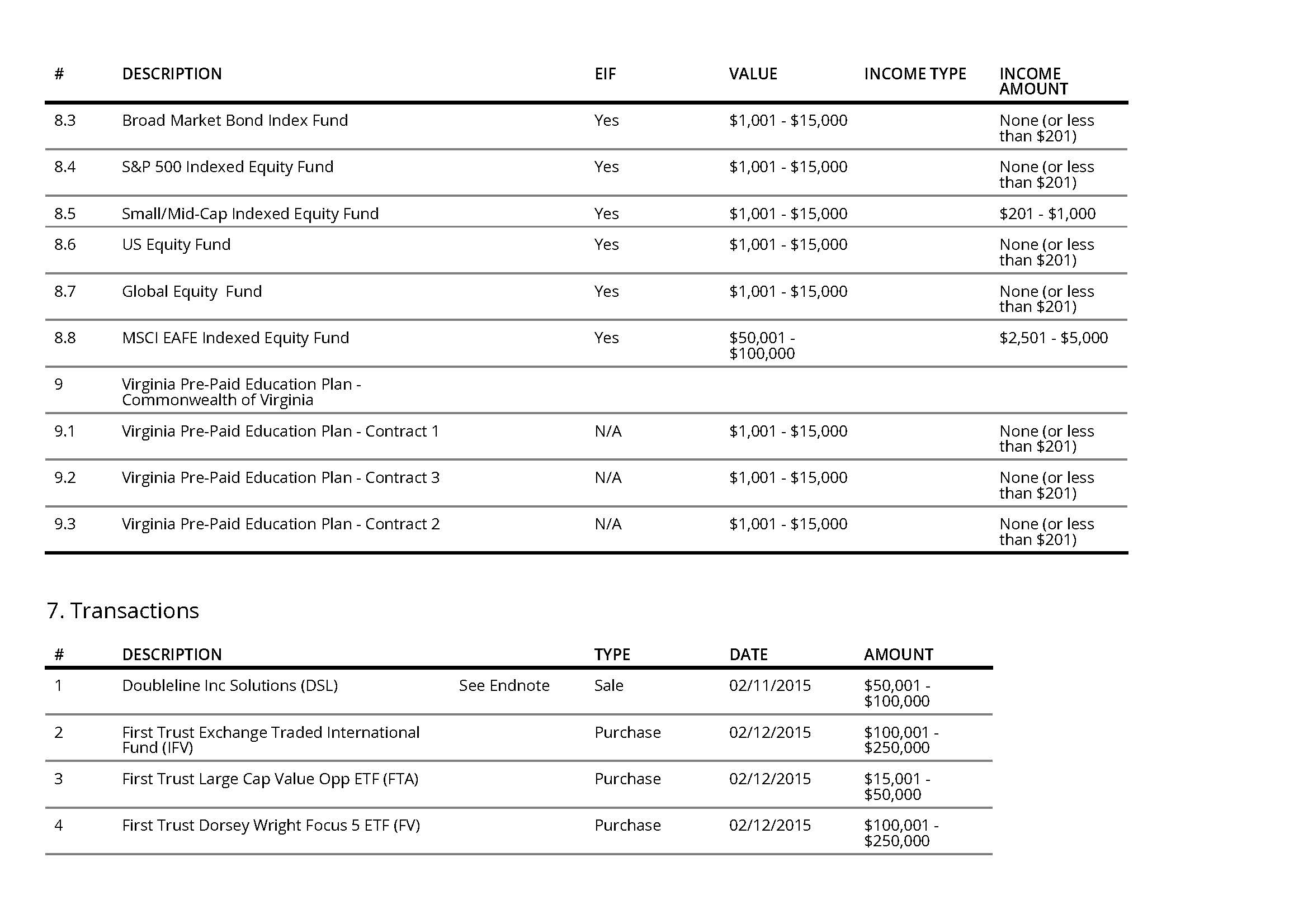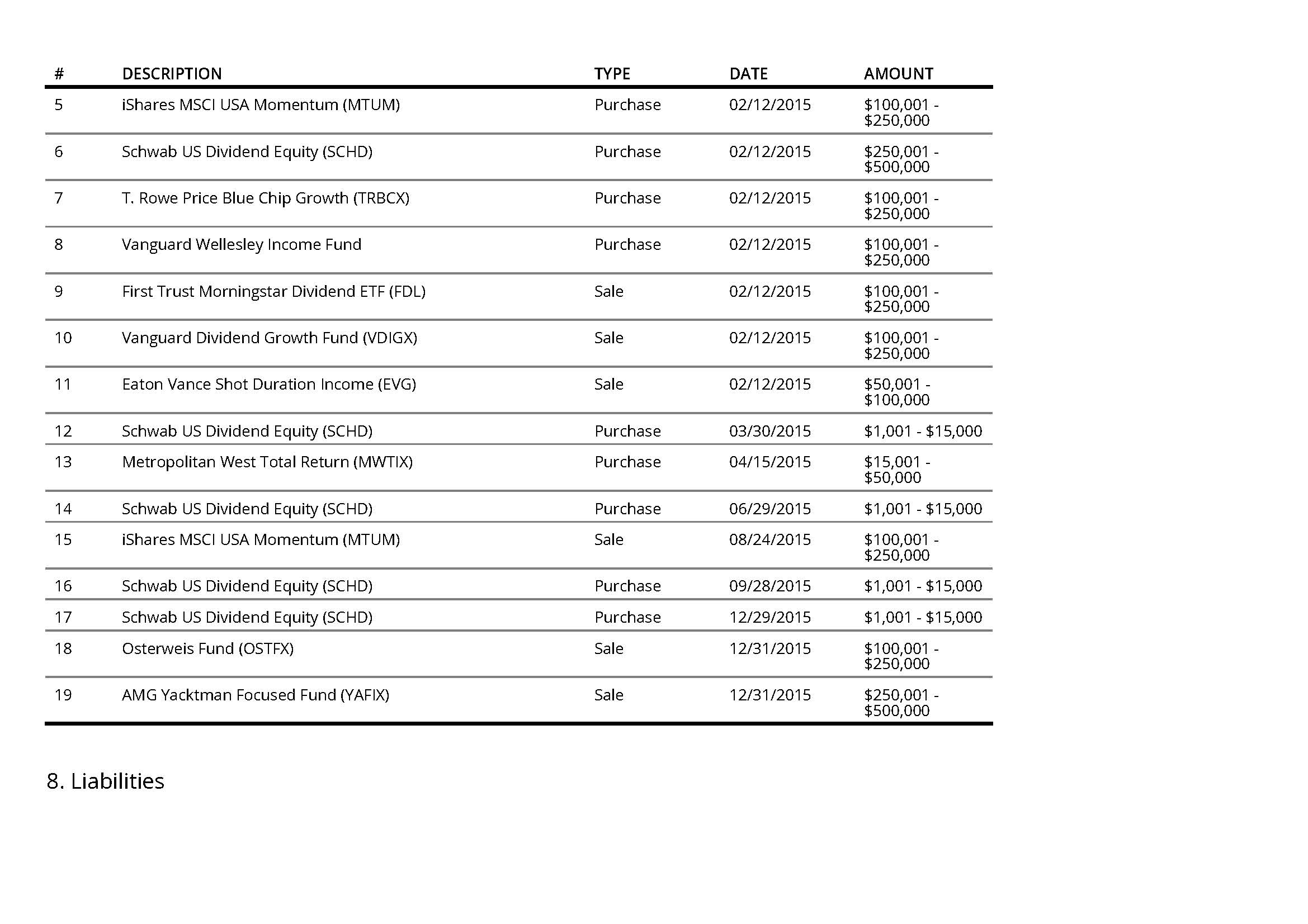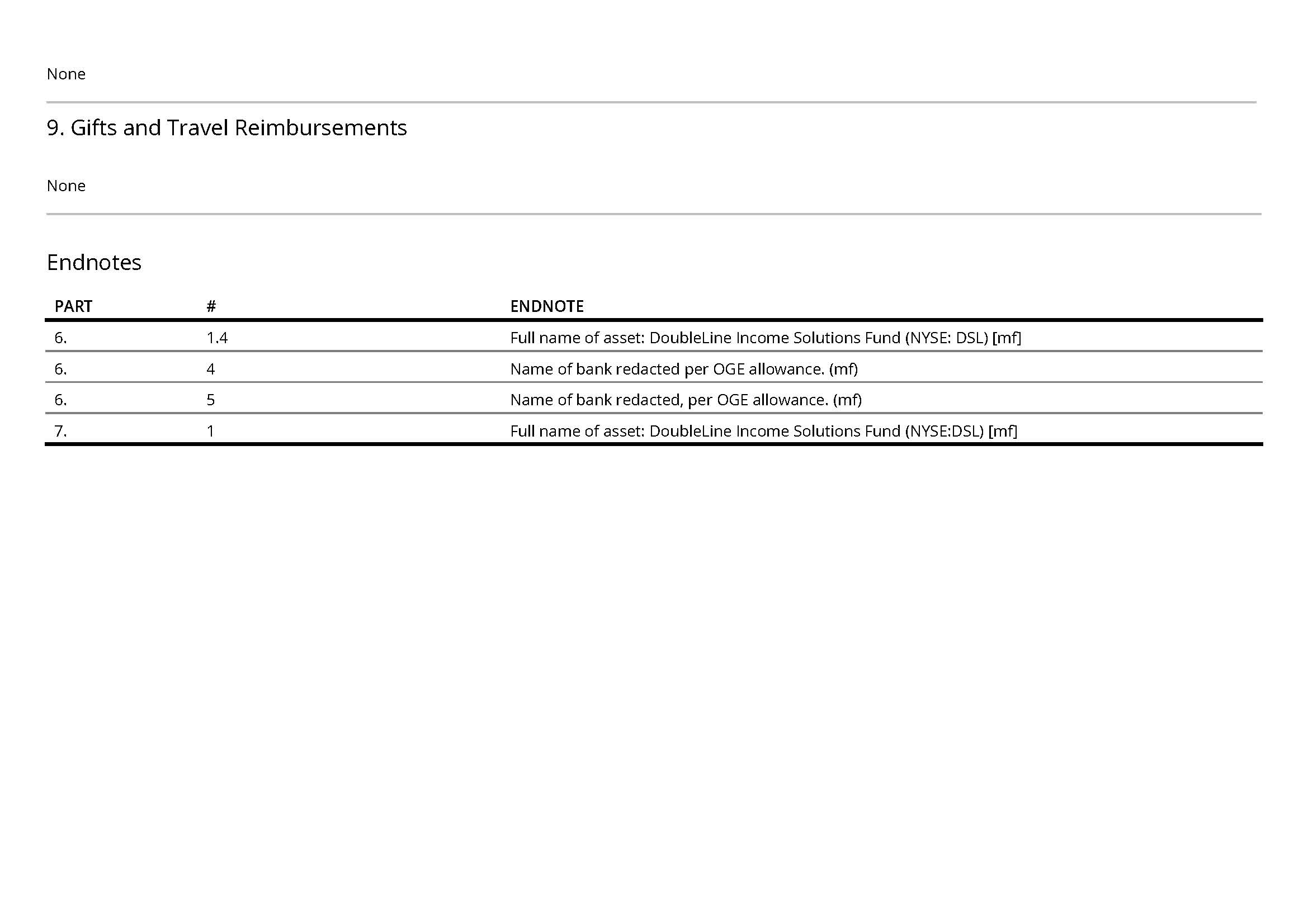>>> Like all high-ranking officials in the executive branch, FBI Director James Comey has to file yearly financial disclosures (listing his assets, investments, debts, etc.), as well as an ethics agreement when he was nominated.
The Office of Government Ethics (OGE) quietly posts the disclosures for only the positions in the two highest pay grades. FBI directors don't make that much, so the OGE doesn't post Comey's disclosures at all. His filings must be specially requested from the OGE, which I've done.
All four years of Comey's financial disclosures - plus his ethics agreement - have been posted above as PDFs, with some of the pages below as images.
Comey, it turns out, is a multimillionaire. When he quit Bridgewater Associates (the world's largest hedge fund) upon becoming FBI Director, that alone resulted in a $3 million+ payout. When he filed his first disclosure in 2013, he owned stock in ExxonMobil, Pepsi, Coca-Cola, Verizon, AT&T, Apple, Microsoft, HP, Intel, Qualcomm, Nestle, Caterpillar, John Deere, WD-40, DuPont, and the Carlyle Group, among many others. In his 2016 filing, which covers 2015, he lists assets worth up to $13.5 million total, including up to $550,000 cash in the bank, and no debts.
P.S.: Here's the OGE's warning that accompanies these disclosures:
Title 1 of the Ethics in Government Act of 1978, as amended, 5 U.S.C. app. § 105(c), states that: 1. It shall be unlawful for any person to obtain or use a report: (A) for any unlawful purpose; (B) for any commercial purpose, other than by news and communications media for dissemination to the general public; (C) for determining or establishing the credit rating of any individual; or (D) for use, directly or indirectly, in the solicitation of money for any political, charitable, or other purpose. 2. The Attorney General may bring a civil action against any person who obtains or uses a report for any purpose prohibited in paragraph (1) of this subsection. The court in which such action is brought may assess against such person a penalty in any amount not to exceed $11,000. Such remedy shall be in addition to any other remedy available under statutory or common law.
Pages from the 2013 disclsoure
Pages from the 2016 disclosure



